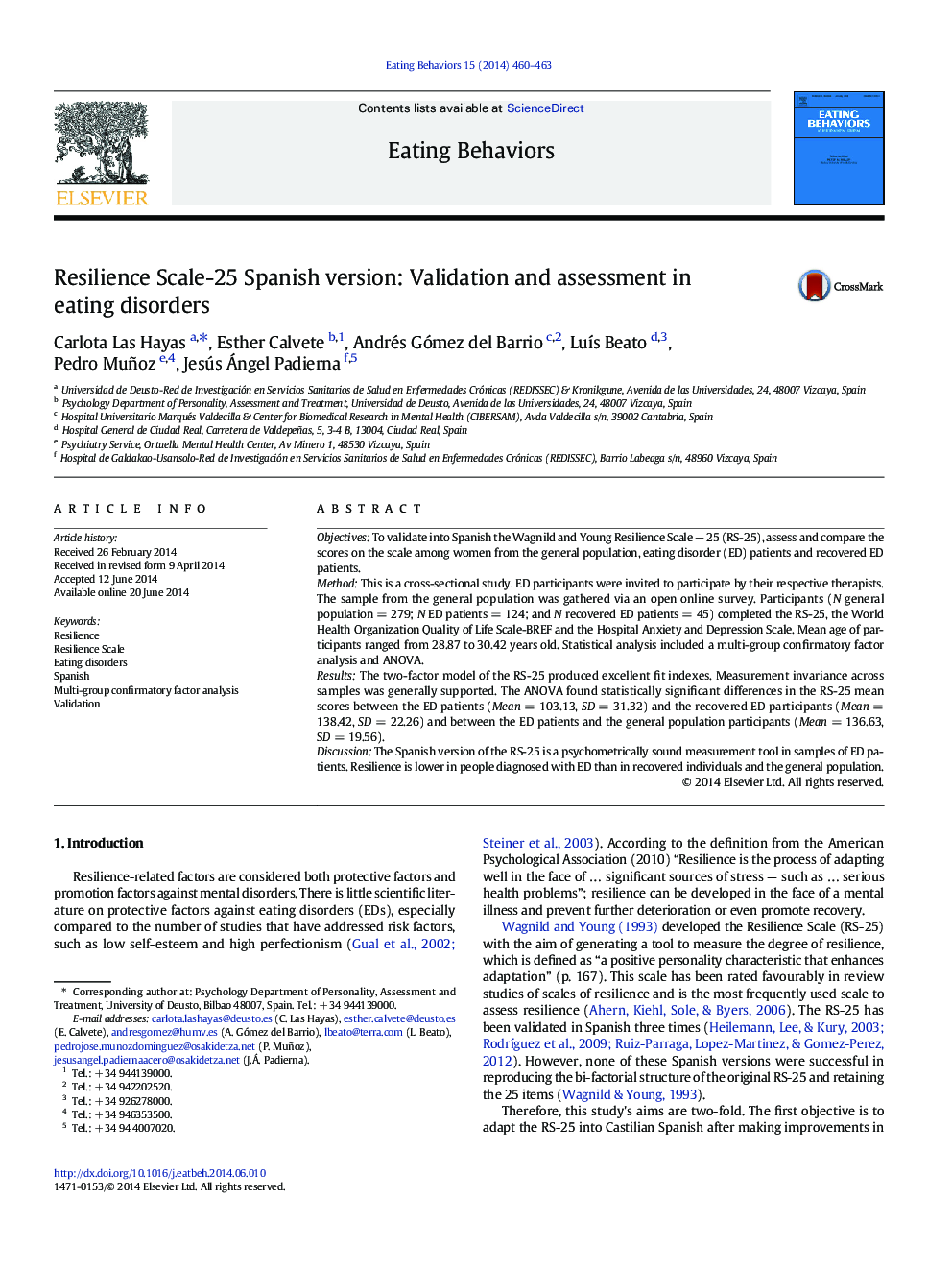| Article ID | Journal | Published Year | Pages | File Type |
|---|---|---|---|---|
| 906367 | Eating Behaviors | 2014 | 4 Pages |
•The Spanish adapted version of the Resilience Scale — 25 (RS-25) was validated.•This is the first study that assesses resilience in eating disorders (ED).•Resilience scores measured by the RS-25 are low in persons with an ED.•ED persons score low on “personal competence” and “acceptance of self and life”.•Persons recovered from an ED show similar resilience scores as the general population.
ObjectivesTo validate into Spanish the Wagnild and Young Resilience Scale — 25 (RS-25), assess and compare the scores on the scale among women from the general population, eating disorder (ED) patients and recovered ED patients.MethodThis is a cross-sectional study. ED participants were invited to participate by their respective therapists. The sample from the general population was gathered via an open online survey. Participants (N general population = 279; N ED patients = 124; and N recovered ED patients = 45) completed the RS-25, the World Health Organization Quality of Life Scale-BREF and the Hospital Anxiety and Depression Scale. Mean age of participants ranged from 28.87 to 30.42 years old. Statistical analysis included a multi-group confirmatory factor analysis and ANOVA.ResultsThe two-factor model of the RS-25 produced excellent fit indexes. Measurement invariance across samples was generally supported. The ANOVA found statistically significant differences in the RS-25 mean scores between the ED patients (Mean = 103.13, SD = 31.32) and the recovered ED participants (Mean = 138.42, SD = 22.26) and between the ED patients and the general population participants (Mean = 136.63, SD = 19.56).DiscussionThe Spanish version of the RS-25 is a psychometrically sound measurement tool in samples of ED patients. Resilience is lower in people diagnosed with ED than in recovered individuals and the general population.
